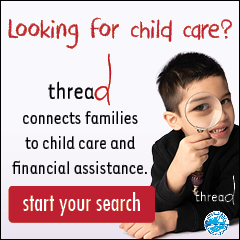The Parent-Teacher Partnership
How can teachers better serve your children and help them be successful in school? Educators share their tips and strategies
By E. Colleen Kelly

Ah, summer vacation – your child’s three-month hiatus from pencils, books and teachers’ dirty looks. Soon, those long days of playing outside under the midnight sun will be replaced with back-to-school shopping, picture days and a backpack full of homework. Chances are, at some point during the school year you, as a parent, will become frustrated with an assignment or feel like your child isn’t getting as much attention as their classmates. We’ve called upon teachers throughout Alaska to share their advice for how to foster a strong parent-teacher relationship.
How To Drive Your Kid’s Teacher Crazy (What Not To Do)
• Talking and gossiping with other parents without confronting the teacher.
• Saying that the homework is “too much.”
• Parents not having high expectations for their children.
• Parents waiting to contact a teacher until the last day of the semester (after finals week) to ask about an assignment or test from two months prior.
• Parents not providing teachers with current contact information. If you move or get a new phone, share it with your kid’s teachers. “Invariably, every year I lose the ability to contact parents because of this very reason and I have no way to get important information to them,” says Benton.
It all Starts at Home
“The most important thing a parent can do to help their child be successful at school is to model learning behaviors,” says Rebecca Himschoot, teacher at Keet Gooshi Heen Elementary in Sitka, and the 2014 recipient of the Presidential Award for Excellence in Mathematics and Science. Attitudes about education (good or bad) will transfer to the classroom, she says. For example, if a parent moans and groans about their child’s homework or how much they disliked reading, math or just school in general, so will their child. When parents show their children that they both value education and use it in their daily lives, it helps children develop positive attitudes toward school and learning, and build confidence in themselves as learners.
Be a Team
“I see your child for seven or more hours every day. I’m getting to know them very well and spending just as much time with them as you are. I want that time to be positive, too,” says Jena Benton, who has been teaching for five years at the elementary and high school levels in Anchorage.
Teachers want parents to be partners in their children’s education. Meet with them, call them, zip out an email, pop over a text message or communicate in some way (especially if you have concerns). If your child’s teacher isn’t currently sending out newsletters, email blasts or otherwise contacting you on a regular basis, make the suggestion. Don’t be a passive parent. “You and I are a team trying to help your student grow and learn in a positive way. Anything I can do to help with that, I will,” says Benton.
Depending on the classroom and whether or not class schedules rotate, one teacher can see anywhere between 20 and 120 kids a day. “Try taking the load off teachers by volunteering for duties, such as entering book orders or organizing class parties and celebrations,” suggests Himschoot. “Parent-organized events are sometimes better than what a harried teacher might come up with. Also, volunteering an hour a week for any kind of project, whether it includes contact time with kids or just photocopying, is super valuable for teachers.”
Keep Lines of Communication Open
Himschoot uses the first two weeks of school to call every family in her classroom just to touch base. “If your child’s teacher doesn’t do this, please take the first step to make sure the teacher knows you are interested in being involved. But also bear in mind that a teacher only has so much time. Try to keep your conversation focused.”
Setting expectations at the beginning of the year and involving students in the process works well. “I have my students fill out a daily planner that parents sign so we know that we are all on the same page,” says Zan Zoske, a Japanese immersion teacher in the Anchorage School District with 22 years of experience.
If There’s a Problem
When a conflict arises, this is where the good relationship you’ve built pays off. Stay neutral until you have more information – there are always two sides to every story, and educators are not immune to miscommunication. Be direct and timely with concerns. If you have an issue with a grade or behavior feedback, talk it through with the teacher first before taking it to the principal or others. The sooner a parent voices their concerns, the sooner it can be dealt with. Don’t let problems escalate.
Also, children are not immune to the stressors and frustrations that adults experience. If you’re going through a divorce, a family pet dies or grandma is very ill, it will affect your child as a student. You may not wish to share details of your family’s private life with your child’s teacher, but flagging them on major events in your child’s life will help them be more understanding when your child is going through a rough time.
Growing Up, But Not Outgrowing Parental Support
“Some parents may feel they don’t need to attend open house or parent-teacher conferences once their kids get into high school. One father told me he wanted his son to be more independent, so he didn’t want to meddle in his schooling,” says Carla Swick, Mat-Su Valley teacher and 2001 BP Teacher of Excellence recipient. The advice? Do go to open houses and conferences – the more parents know about their children’s school and classes, the more likely teachers will be to talk with parents about daily experiences and approach them when they have problems. Also, by actively participating in these school activities, parents send some critical messages to their child; they’re demonstrating their interest in their education and reinforcing the idea that school is important.
Experts agree: A student’s success is a team effort between the child, the school and the parent or guardian. And when parents and teachers are on the same team and working together, students benefit with higher grades and a more positive attitude toward themselves, their school and their future.









